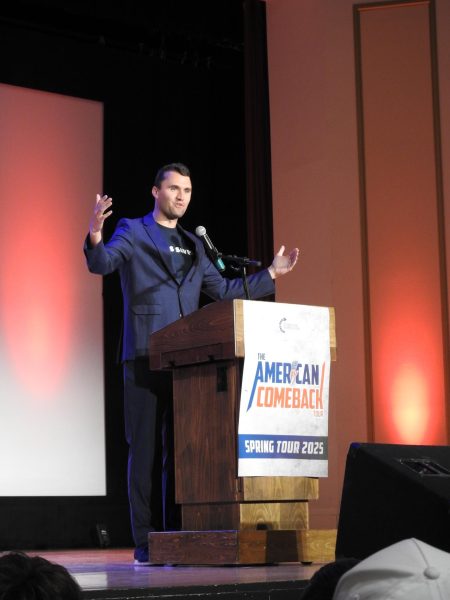Uni High Students and Faculty Revisit #MeToo
Recently, the now year old #MeToo movement has been thrust back into the national limelight.
Uni Administrator Dr. Radnitzer says the #MeToo movement added to a “climate” that sparked the administration to take another look at Uni’s sexual harassment policies.
Subsequently, they have been updated.
At assemblies going over these new policies, counselors and administrators said that people should come forward if something happens to them.
This “climate” has spurred more conversations about sexual assault, sexual harassment and the #MeToo movement throughout Uni.
“I think that it’s great that women are finding the courage to stand up to people like that,” said Subbie Mariam Vaid when asked about her thoughts on the #MeToo movement, “And using each other’s bravery as their own inspiration.”
Executive English teacher Dr. Majerus believes that the #MeToo movement is important as it sheds light on sexual assault and harassment; topics that aren’t usually talked about.
“… part of the problem with sexual violence is that victims do not tend to report, often they do not tell anyone, and this often perpetuates the problem,” said Majerus, “So part of what I think is amazing about the #MeToo movement is that it is just breaking a silence that has been there for a really long time.”
She also believes that movements like #MeToo help to “get more justice for victims, and help people get through their trauma”, as well as helping to end rape culture that “thrives on secrecy and shame”.
On the other hand, while in favor of #MeToo’s message, Sophomore Curtis Althaus is more skeptical of how the #MeToo movement lives on Twitter, which is a public platform.
Althaus also points out how a lot of the times, the people participating in the #MeToo movement “… do not provide conclusive evidence to their statements.”
“I am not saying that they weren’t raped,” he said. “The problem is that this then desensitizes the whole idea of rape… I do not think that it is proper to talk about these things on social media. Or just trying to get a response from people…when it’s really more of a personal thing.”
While Dr. Radnitzer agrees with the #MeToo movement, he may agree with Althaus in the sense that using social media as a platform also has its downsides.
“It used to be innocent until proven guilty,” he said, “and now it is guilty until proven innocent.”
Doing these kinds of things on social media, Dr. Radnitzer says, “. . . does not give the person any chance to respond.” As once they have time to respond, the rumor of what they did has already spread, “so quickly and so far . . . it is hard to pull back.”
